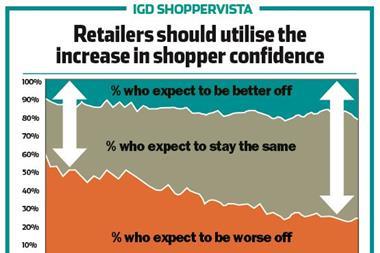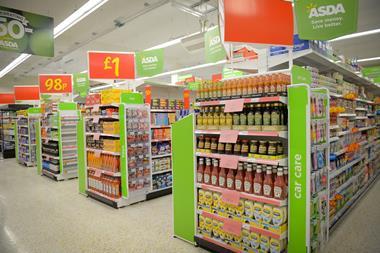- Weekly discretionary income in April reached £200 per week for the first time
- Disposable income for UK families rose 6.3% year on year
- April marks the 18th consecutive month of double-digit growth in discretionary income
Disposable income hit £200 per week for the average UK family last month, the highest level of spending power on record.
Families enjoyed a £12 boost to their bank balances during April compared to the same month last year despite sluggish wage growth owing to the impact of continued deflation, according to the Asda Income Tracker.
The 6.3% spike in spending power drove disposable income levels to the highest figure since the tracker began in 2008.
Consumer price inflation dropped to 0.3% – the first fall in the headline rate of inflation since 2015.
Essential item inflation fell 0.2% during the month. Asda said this helped mitigate the effects of slowing wage growth.
The grocer’s latest tracker added that the cost of transport dropped 1.3% year-on-year, while vehicle fuels plunged 7.5% to give consumers even more spare change in their wallets.
However, prices of leisure events rose 3.8% in April, making it more costly for families to visit the cinema or eat out.
Asda boss Andy Clarke said the £200 a week level was “a significant milestone” for consumers.
He added: “Double-digit growth in household income is clearly good news for UK consumers, although we continue to see them take a prudent approach to spending on every day items.
“Looking ahead, the outlook remains cautiously optimistic, which is encouraging and should give consumers a boost as we head into summer.”
Cebr economist Sam Alderson added: “Uncertainty surrounding the outcome of the UK’s referendum on EU membership and the underlying health of the British economy have weighed heavily on the confidence of businesses in recent months.
“In contrast, the continuation of increasing household spending power has helped keep consumer confidence robust.
“As such, activity in the consumer side of the economy appears to have ridden the series of turbulent economic waves seen since the start of the year much better.”
























No comments yet